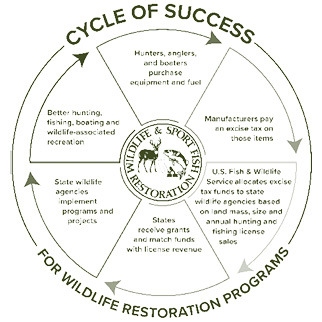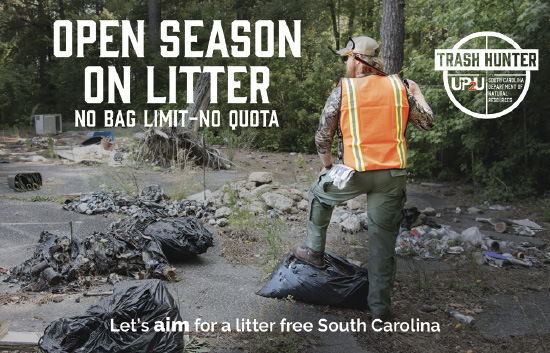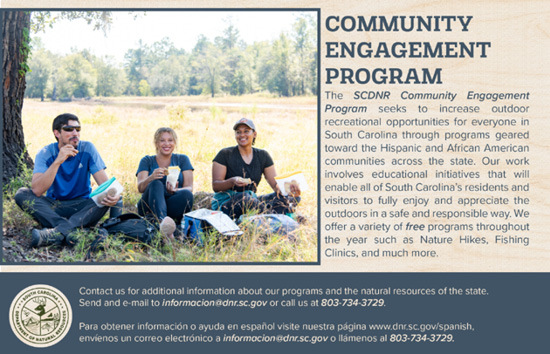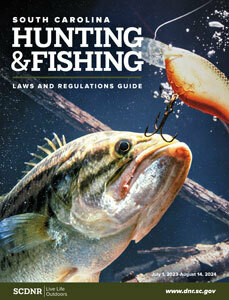Department of Natural Resources Board
State of South Carolina
Henry McMaster, Governor
Department of Natural Resources Board
Norman F. Pulliam, Chairman
Michael E. “Mike” Hutchins, Vice Chairman
Dr. Mark F. Hartley
Jake Rasor, Jr.
James Carlisle Oxner III
Duane Swygert
Jerry A. Lee
Department of Natural Resources
Robert H. Boyles, Jr., Director
Shannon Bobertz, Esq., Chief of Staff
Deputy Directors
Emily Cope, Wildlife and Freshwater Fisheries
Colonel Chisolm Frampton, Law Enforcement
Blaik Keppler, Marine Resources
Ken Rentiers, Land, Water & Conservation
Regulations
Published July 2023
Property-specific regulations outlined in this booklet could change due to the need for emergency regulations. Such changes will be publicized on the SCDNR website as any new emergency legislation is passed. Discrepancies between this book and any statute or regulation shall be governed by the statute or regulation. To research laws, visit
Other information is published only in SCDNR news releases. This includes announcements relative to shrimp baiting, public hearings, SCDNR Board decisions and position statements, new legislation, youth activities, mobility impaired US Dept. of Agriculture cost-share programs, special lottery hunts, schedules for newly acquired areas and many other items of interest. SCDNR news releases are published weekly and distributed free to editors of all regional and local newspapers and are available to the public on the SCDNR website.
Thank You!
Thank you to the hunters, anglers, boaters and manufacturers for supporting SCDNR’s wildlife management and conservation efforts through this program for over 80 years.

Important Information
Eating Fish Caught in South Carolina
The South Carolina Department of Health and Environmental Control (SCDHEC) and the South Carolina Department of Natural Resources (SCDNR) believe that fish are a healthy, low-fat source of protein. To make sure that the fish you catch are safe to eat, DHEC tests fish from lakes, rivers and streams throughout South Carolina.
To protect your health, DHEC issues fish consumption advisories in areas where contaminated fish have been found. For more information on the advisories, call DHEC, toll free, at 1-888-849-7241 or go to DHEC’s web page at
Natural Shorelines are Good for Fishing
By keeping shorelines natural, you can help protect water quality and improve fish habitat. A shoreline without trees and shrubs can get washed away, making the water muddy and unsuitable for fish. If you live near a lake or a river, plant a buffer strip along the water’s edge using trees, shrubs, wildflowers or other native plants. Trees and other vegetation filter pollution and provide shade, shelter, habitat, and food critical for bass, trout, and other fish to thrive and reproduce. Keep your favorite fishing spots well vegetated! For more tips and information, visit




